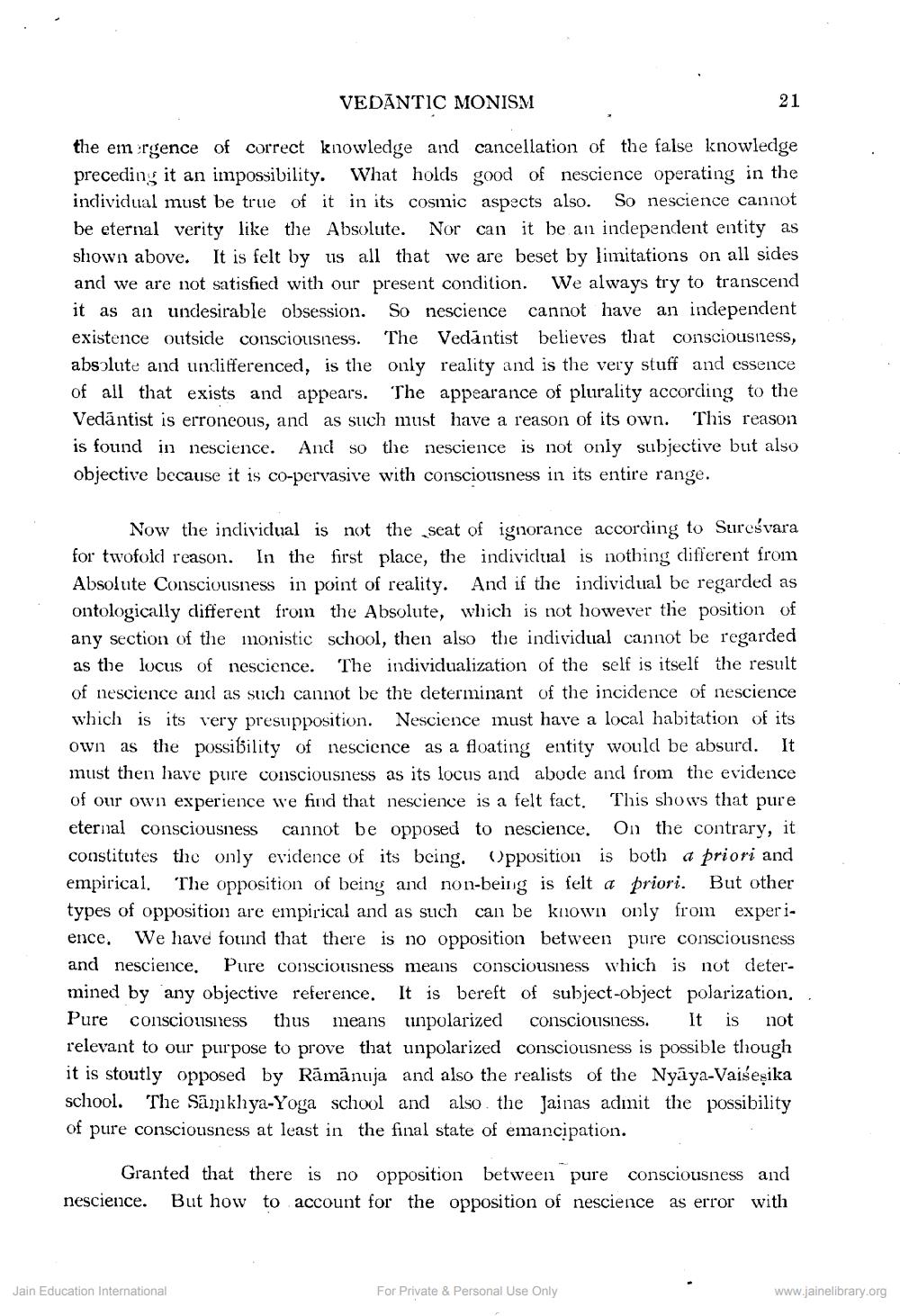________________
VEDANTIC MONISM
21
the em rgence of correct knowledge and cancellation of the false knowledge preceding it an impossibility. What holds good of nescience operating in the individual must be true of it in its cosmic aspects also. So nescience cannot be eternal verity like the Absolute. Nor can it be an independent entity as shown above. It is felt by us all that we are beset by limitations on all sides and we are not satisfied with our present condition. We always try to transcend it as an undesirable obsession. So nescience cannot have an independent existence outside consciousness. The Vedāntist believes that consciousness, absolute and undifferenced, is the only reality and is the very stuff and essence of all that exists and appears. The appearance of plurality according to the Vedāntist is erroneous, and as such must have a reason of its own. This reason is found in nescience. And so the nescience is not only subjective but also objective because it is co-pervasive with consciousness in its entire range.
Now the individual is not the seat of ignorance according to Sureśvara for twofold reason. In the first place, the individual is nothing different from Absolute Consciousness in point of reality. And if the individual be regarded as ontologically different from the Absolute, which is not however the position of any section of the monistic school, then also the individual cannot be regarded as the locus of nescience. The individualization of the self is itself the result of nescience and as such cannot be the determinant of the incidence of nescience which is its very presupposition. Nescience must have a local habitation of its own as the possibility of nescience as a floating entity would be absurd. It must then have pure consciousness as its locus and abode and from the evidence of our own experience we find that nescience is a felt fact. This shows that pure eternal consciousness cannot be opposed to nescience. On the contrary, it constitutes the only evidence of its being. Opposition is both a priori and empirical. The opposition of being and non-being is felt a priori. But other types of opposition are empirical and as such can be known only from experience. We have found that there is no opposition between pure consciousness and nescience. Pure consciousness means consciousness which is not determined by any objective reference. It is bereft of subject-object polarization, Pure consciousness thus means unpolarized consciousness. It is not relevant to our purpose to prove that unpolarized consciousness is possible though it is stoutly opposed by Rāmānuja and also the realists of the Nyāya-Vaiseșika school. The Samkhya-Yoga school and also the Jainas admit the possibility of pure consciousness at least in the final state of emancipation.
Granted that there is no opposition between pure consciousness and nescience. But how to account for the opposition of nescience as error with
Jain Education International
For Private & Personal Use Only
www.jainelibrary.org




